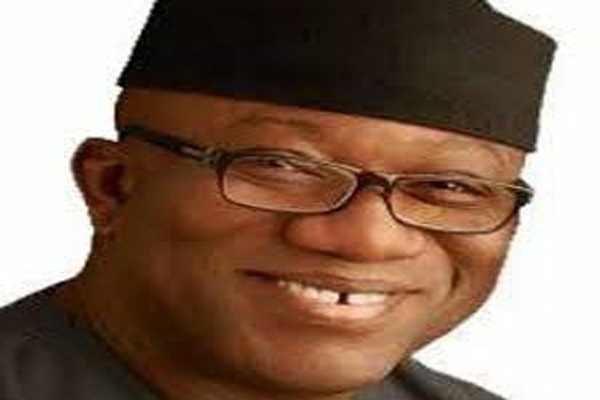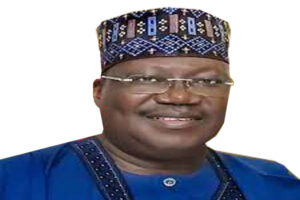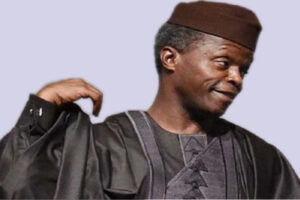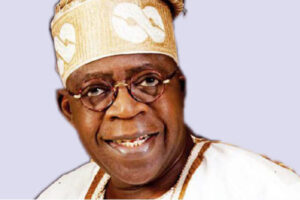Kayode Fayemi – Highly favoured by a powerful political block
From his youth through his professional and political career, John Olukayode Fayemi has been a loyalist of notable Yoruba political leaders: Obafemi Awolowo, Moshood Abiola, Olusegun Obasanjo and Bola Ahmed Tinubu. In return, his own flourishing political career has profited generously from his loyalty. For instance, his election to the position of Governor of Ekiti State twice and his appointment as a federal minister is widely attributed to the mentorship of Senator Bola Tinubu, former Lagos State Governor and National Leader of the All progressives Congress (APC).
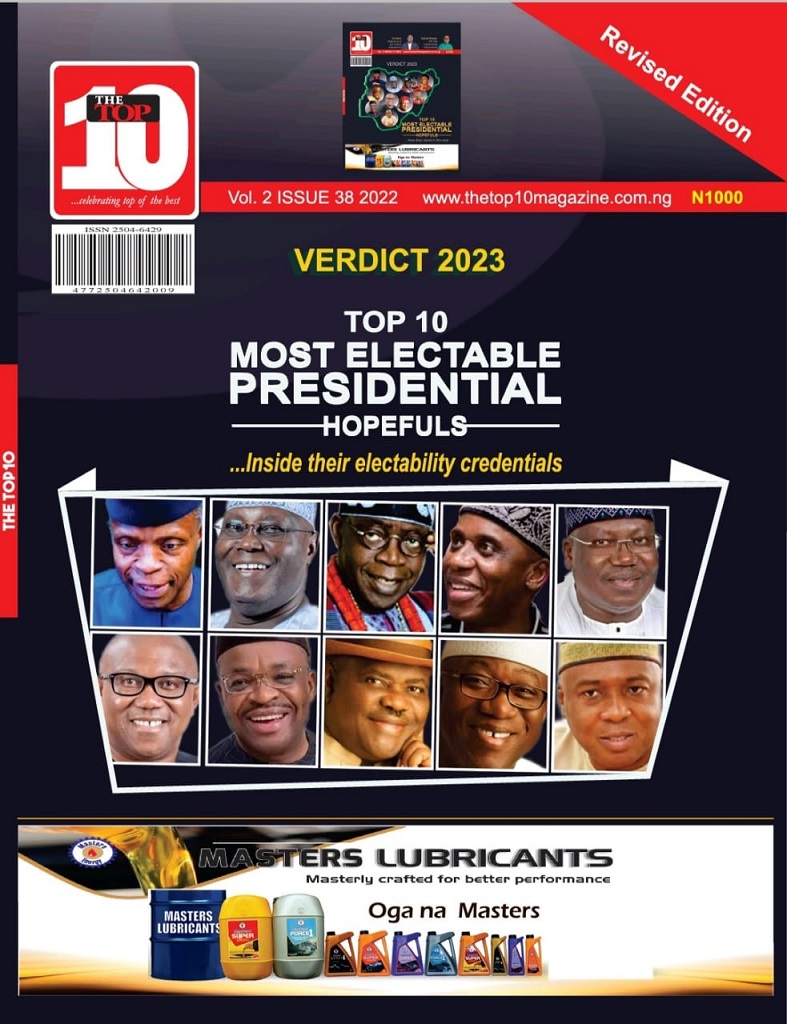
But Dr. Fayemi is no longer a political pupil; the young has grown and is now his own master, fully ready to lead Nigeria at the highest level: The presidency. The Ekiti State Governor is in the race to become Nigeria’s president next year on the platform of APC, a contest that brings him into direct confrontation with his erstwhile political godfather, Tinubu, who is also vying for the same office on the same party platform. This battle line between political godfather and his godson has elicited controversy in which Fayemi is cast by Tinubu’s supporters as an ingrate or betrayer – one that has decided to bite the finger that fed him.
But Fayemi’s supporters have retorted, saying the godfather has had his time and should yield way to his “children” to grow. One of them, Hon. Karounwi Oladapo, a former Deputy Speaker of Ekiti State House of Assembly and Caretaker Zonal Publicity Secretary of APC in the South-West, said: “Our national leader, highly respected Senator Ahmed Tinubu, I love him because he has paid his due but the fact remains that by 2023 he will be above 70 years of age… Dr Kayode Fayemi that I am advocating for is 55 years of age, a senior youth within the bracket of the ‘sorosoke’ generation’s request.”
Another reason why Fayemi decided to enter the race against his mentor, according to Oladapo, is that Tinubu is virtually disqualified on religious grounds. He explains: “When you look at the presidential arrangement of Nigeria, whether by design or default or coincidence, If you look at it from 1999, you will see that we had Obasanjo, a Christian President by religion from the South. After Obasanjo, power shifted to Yar’Adua, a Muslim from the North; and power again shifted to a Christian Jonathan from the South before power again moved to Buhari, a northern Muslim. By reasoning, one would naturally want to deduce that the next President should be a Christian southerner.
Senator Bola Ahmed Tinubu is a Muslim and that is No No. Muslims have not succeeded themselves by the analysis I made of the Nigerian history. Fayemi is a Christian from the South and the crown fits him… Fayemi, on account of age, is qualified and it is the turn of Christians.”
One factor that also counts for the Governor is his state of origin, Ekiti, which is considered by his camp as the least represented politically at the federal level.
“When you look at the prominent positions occupied by South-West states at the national level over the years,” says Oladapo, “it is only Ekiti that history has nothing to record for.”
Ogun has produced President, Vice President, presidential candidate and vice presidential candidate, Oyo has produced leader of Senate, Lagos has the current Speaker of the House of Representatives, Osun produced the National Chairman of AD, AC, ACN and APC while Ondo produced the presidential candidate of AD/APP; “it is only Ekiti State that is left behind and I must say that our state is not an appendage of any other state. This time we are ready to make a mark.”
In his presidential aspiratiion declaration speech, May 4, 2022, Fayemi said: ” After a careful consideration of where we are as a nation and the many perspectives which are emerging about the challenges, old and new, which we must gird our loins to tackle and transcend, I am convinced that my entry into the race to bear the standard of the APC will offer our members and Nigerians the opportunity to examine competing visions for national rebirth in the best interest of our country. And it is on the foundation of a clear vision accompanied by a carefully thought out programme of action that I present my candidature. I do so fully convinced on the basis of what I have experienced, heard, and seen about the demands of the times and the aspirations of our people that the agenda that I am proposing for our country is one which will find favour with APC members and win resounding traction with the generality of Nigerians..Let the work begin. I am ready. “
Personal accomplishments
Dr. Fayemi was born on February 9, 1965, a native of Isan-Ekiti in Oye Local Government Area of Ekiti State.
Fayemi attended Christ’s School, Ado Ekiti, from 1975 to 1980. He later went on to receive degrees in History, Politics and International Relations from the University of Lagos and University of Ife (now Obafemi Awolowo University).
From 1989 to 1992, he did a Doctorate programme in War Studies from King’s College London, specializing in civil-military relations.
From 1985 to 1986, he was a Lecturer at the Nigeria Police Training College in Sokoto and a Research Officer at Development & Management Consultants in Ikeja between 1987 and 1989. From 1991 to 1993 he was a Research Officer at the African Research and Information Bureau in London and in 1992 was a Tutorial Fellow at the War Studies Department at Kings College, London.
From 1993 to 1995, Fayemi was the Strategy Development Adviser of Deptford City Challenge in London. From 1995 to 1997, he was the Secretary General of the Media Empowerment for Africa (The Radio Foundation) in London. He was also a journalist with The Guardian and City Tempo; and the Editor of Nigeria-Now, a political monthly magazine.

In 1997, Fayemi returned to Nigeria where he established the Centre for Democracy & Development, a research and training institution dedicated to the study and promotion of democratic development, peace-building and human security in Africa, where he served as Director from 1997 to 2006.
Kayode Fayemi has lectured in Africa, Europe, the Americas and Asia. He has also served as an adviser on transitional justice, regional integration, constitutionalism, security sector reform and civil-military relations issues to various governments, inter-governmental institutions and development agencies.
He was the main technical adviser to Nigeria’s The Human Rights Violations Investigation Commission (Oputa Panel), which investigated past abuses and served on the Presidential Implementation Committees on Security Sector Reform, NEPAD and the Millennium Development Goals. He was technical expert to the Economic Community of West African States (ECOWAS) on small arms and light weapons and United Nations Economic Commission for Africa on governance issues.
At other times he has served as a consultant to the OECD on Security Sector Reform and chaired the Commonwealth Human Rights Initiative’s Committee of Experts on developing guiding principles and mechanisms of constitution making in Commonwealth Africa.
Governor Fayemi is a Fellow and member of numerous national and international organizations, has served on many boards and authored many books.
Political/Governmental antecedents
In 2007, Fayemi made his entry into politics by contesting for Governor of Ekiti State. After three and a half years fighting through the legal system, the appeal court sitting in Kwara state, on October 15, 2010 declared Fayemi the duly elected Governor of Ekiti State.
In April 2014, Fayemi was endorsed as the governorship candidate of the APC in the state’s gubernatorial elections in which he was defeated at the polls on June 21, 2014 by a previous governor, Ayodele Fayose.
Fayemi recontested for second term as Ekiti state governor under the platform of APC in the July, 2018 governorship election after resigning as the Minister of Solid Minerals Development. He was officially declared as the winner of the Governorship election in Ekiti state by the Independent National Electoral Commission on July 15, 2018 and was sworn in in October 2018, as Ekiti State governor for the second time. Fayemi was elected Chairman of the Nigeria Governors’ Forum which he led till 2021.
Integrity/credibility
Although Fayemi’s tenure as Governor of Ekiti State from 2010 to 2014 was investigated by the Independent Corrupt Practices Commission (ICPC) in 2016 for alleged misappropriation of funds and, in July 2020, was accused of “financial impropriety” relating to the Ajaokuta Steel Mill during his tenure as Minister of Solid Minerals Development, nothing indicting was found against him in both cases. “Even on account of capacity, integrity, strength of character, this is a young man who, for ten years, has been in public eye as governor, minister and now as governor.. he has never been indicted in any part of the world,” Oladapo said. “This is a guy that at the age of 28 under the military regime, no one could talk any longer, the press had been muscled but he coordinated the establishment of Radio Kudirat that provided the voice for Nigerians to speak to the international community.”
National Outlook
Fayemi’s national political outlook was broadened by the roles he played at the national stage as Chairman of Nigerian Governors’ Forum and minister of Solid Minerals Development. He has built a strong international network of development partners across the world. He has been tested with the chairmanship of the Nigeria Governors’ Forum. He brought glamour into the Nigeria Governors Forum and earned respect and love of all governors across party line. He helped most of the governors to attract international development partners and showed them through peer review how to get international grants to drive development in their states.
As one analyst put it, “Fayemi, from available records is a dynamic national leader exceptionally good at painting a clear vision that inspires and motivates the populace.
“Secondly, he is among the few politicians and public office holders in Nigeria that have demonstrated a passion for their purpose and practiced their core values..”
Based on the advantages he enjoys in his southwestern geopolitical zone, and the high rating he enjoys in the presidential race generally, Governor Fayemi has earned a place on the list of top 10 presidential hopefuls selected for this revised edition of the Top10 magazine.

